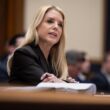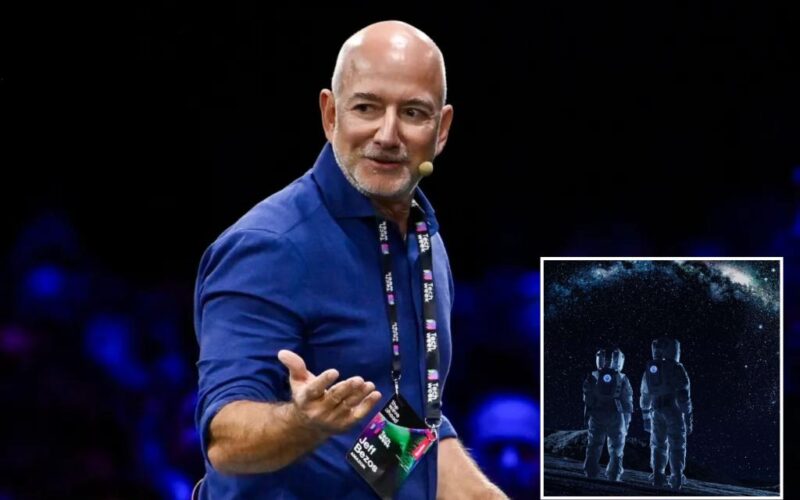Jeff Bezos thinks the future is looking up — literally.
While doomsayers warn artificial intelligence will end civilization, the Amazon and Blue Origin founder says the next 20 years will be a golden age — one in which humans will be happier, richer and living beyond Earth while working far fewer hours.
“I don’t see how anybody can be discouraged who is alive right now,” Bezos told a crowd at Italian Tech Week 2025 earlier this month, declaring that technology is about to rocket humanity into an era of “civilizational abundance.”
Forget your morning commute. Bezos predicted that by 2045, robots will handle that grind for us. And for many, the office might be off-planet.
“In the next kind of couple of decades, I believe there will be millions of people living in space,” he said. “That’s how fast this is going to accelerate.
“They’ll mostly be living there because they want to,” Bezos added.
“We don’t need people to live in space,” he emphasized.
The world’s fourth-richest man — whose net worth was $239 billion as of Thursday, according to Bloomberg Billionaires Index — said work on the moon and beyond will fall to machines.
“If you need to do some work on the surface of the moon or anywhere else, we will be able to send robots to do that work and that will be much more cost effective than sending humans,” he prognosticated.
Bezos brushed off all the gloom that’s surrounded AI since the rise of ChatGPT, saying history proves new inventions always make life better — not worse.
“Civilizational abundance comes from our inventions,” he opined.
“So 10,000 years ago, or whenever it was, somebody invented the plough, and we all got richer … I’m talking about all of civilization — these tools increase our abundance, and that pattern will continue.”
Many experts and public figures warn that AI could cause mass unemployment, loss of human control or even existential catastrophes — fears amplified by dystopian films and some high-profile tech leaders.
Bezos isn’t the only tech titan in the opposite camp.
Tesla CEO Elon Musk — the world’s richest man, whose rocket company SpaceX rivals Bezos’s Blue Origin — believes humans could touch down on Mars by 2028, with unmanned rockets blasting off to the red planet as soon as next year.
SpaceX, now valued at around $400 billion, has been working hand-in-glove with NASA to make that happen.
Meanwhile, OpenAI CEO Sam Altman — whose ChatGPT helped ignite the AI boom — says space careers will soon be the hottest jobs in the galaxy.
He thinks that within a decade, college grads will be working “some completely new, exciting, super well-paid” jobs in orbit, adding he’s “jealous of young people” whose early careers won’t look “boring” and “old” like his generation’s did.
But not everyone’s buying the interplanetary hype.
Bill Gates says billionaires would be better off fixing this planet before colonizing another.
“Space? We have a lot to do here on Earth,” the Microsoft cofounder told late-night host James Corden in 2021.
Still, even Gates admits the rise of AI could give humanity a break — literally. He predicts machines will make workweeks so efficient that two-day schedules could become the norm.
“If you zoom out, the purpose of life is not just to do jobs,” Gates said.








